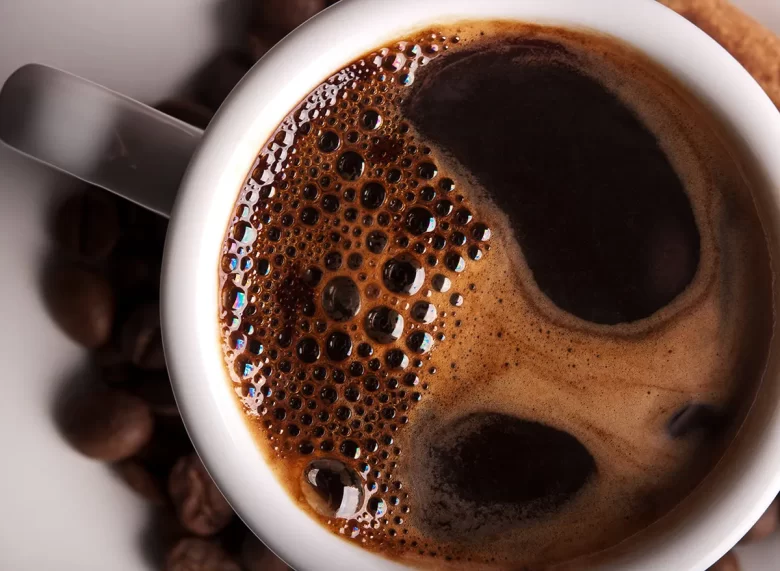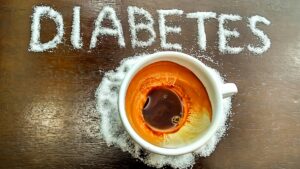Coffee is many people’s favorite way to start the day, and it can also help with weight loss. When consumed in moderation, along with a healthy diet and regular exercise, coffee can help you lose weight in several ways. This article discusses how coffee can help you lose weight and provides useful tips on how to include coffee in your diet in a healthy way.
How Coffee Helps You Lose Weight
1. Speeds up Your Metabolism
Coffee contains caffeine, a natural stimulant that speeds up metabolism. Research shows that caffeine can help you burn more calories, even when you’re doing nothing. This makes it easier to compensate for the calorie deficit you need to lose weight. Coffee speeds up metabolism and helps the body burn more fat. This is especially true when you exercise.
2. Enhances Physical Performance
Caffeine has been shown to improve exercise performance by increasing adrenaline levels and releasing fatty acids from fat cells. This allows your body to easily obtain energy from fat during exercise. Drinking a cup of coffee before a workout can help you build endurance and strength, allowing you to exercise better and burn more calories.
3. Suppresses Appetite
Coffee naturally makes you feel full, which can help you control your appetite and reduce your overall calorie intake. Drinking coffee before meals can help you eat less because you feel fuller. However, don’t rely solely on coffee to curb hunger. Pay attention to your body.
Useful Tips for Weight Loss with Coffee
1. Don’t Drink too Much Coffee
Although coffee can help you lose weight, you should drink it in small amounts. Drinking too much coffee can make you jittery, keep you awake at night, and speed up your heart rate. Limit your coffee intake to two to three cups per day to get the most out of your coffee without negative side effects.
2. Stay Away from High-calorie Ingredients
A common mistake people make when drinking coffee is adding high-calorie products such as sugar, cream, and flavored syrups. These additives can make your coffee higher in calories, making it harder to lose weight. You can also drink your coffee black or with low-calorie milk (such as stevia, almond milk, or coconut milk).
3. Choose a Good Cup of Coffee
The quality of the coffee you drink can affect how effective it is for weight loss. To avoid the use of chemicals and pesticides that are harmful to you, choose high-quality organic coffee beans. Additionally, you may want to choose freshly ground coffee over pre-ground coffee for maximum taste and health benefits.
4. Plan When You Drink Coffee
If you drink coffee in a planned manner, it can help you lose weight further. Drinking coffee before a workout can help you perform better and burn more fat. Additionally, drinking coffee in the morning can speed up your metabolism, giving you more energy during the day. Coffee can make it difficult to fall asleep, so avoid drinking it in the afternoon or evening.
5. Drink Coffee as Part of a Healthy Diet
Coffee can help you lose weight, but it’s not a miracle cure. It is a healthy, balanced diet that includes a variety of different types of nutritious foods. You should eat plenty of fruits and vegetables, lean proteins, and healthy fats. Don’t rely on coffee as a meal replacement and make sure your meals contain enough nutrients.
6. Drink Enough Water
Because coffee is a diuretic, it makes you urinate more, which can cause you to lose fluid. Make sure you drink enough water throughout the day to avoid this effect. Staying hydrated is important for your health in general, and it can also help you lose weight by keeping your metabolism in top shape.
7. Track the Calories you Eat
Even though coffee itself doesn’t contain many calories, you should still pay attention to how many calories you consume in total. Keep track of all the calories from different foods and drinks, even coffee chemicals. Track what you eat every day with a food log or mobile app and cut down on calories to lose weight.
8. Pay Attention to Stress and Sleep
Stress and lack of sleep can make you crave bad foods more and disrupt your metabolism, making it harder to lose weight. Coffee can provide you with energy in the short term, but it is not a substitute for sufficient rest and dealing with stress. Relaxation techniques, regular sleep habits, and putting yourself first can all help you lose weight.
Conclusion
Adding coffee to your weight-loss plan can help in many ways, from speeding up metabolism and improving physical performance to reducing hunger. If you use the helpful tips in this article and choose healthy coffee recipes, you can still enjoy your favorite drink and achieve your weight loss goals. For best results, remember to drink coffee in moderation, avoid high-calorie additives, and follow a healthy diet. If you drink coffee carefully and view weight loss holistically, you can achieve your weight loss goals and live a better life.
FAQs
1. What is the truth about coffee and weight loss?
Coffee can indeed help you lose weight if you drink it in moderation and as part of a healthy diet and exercise plan. The caffeine in coffee can speed up your metabolism, make you stronger, and make you feel less hungry, all of which can help you lose weight.
2. How much coffee should you drink to lose weight?
If you want to lose weight, you should drink two to three cups of coffee every day. But if you drink coffee in a balanced way, you can avoid adverse effects such as stress, insomnia, and increased heart rate while losing weight.
3. What other low-calorie things can I add to my coffee?
You can use stevia, almond milk, or coconut milk, or simply drink your coffee black instead of adding high-calorie sugar, cream, or flavored syrups. Because they are lower in calories, these options can help you enjoy your coffee.
4. Should I drink coffee before or after exercising?
Drinking coffee before a workout is helpful because it can give you more energy, improve your performance, and help you burn more fat. Because caffeine can help you exercise better, coffee is a great pre-workout drink.
5. What should I do if drinking coffee makes me feel nauseous?
If drinking coffee makes you feel restless, drowsy, or experience discomfort such as a fast heartbeat, you may want to reduce your coffee intake or switch to decaffeinated coffee. Also, make sure you only drink two to three cups of coffee per day, and not in the afternoon or evening, to avoid disrupting your sleep.



